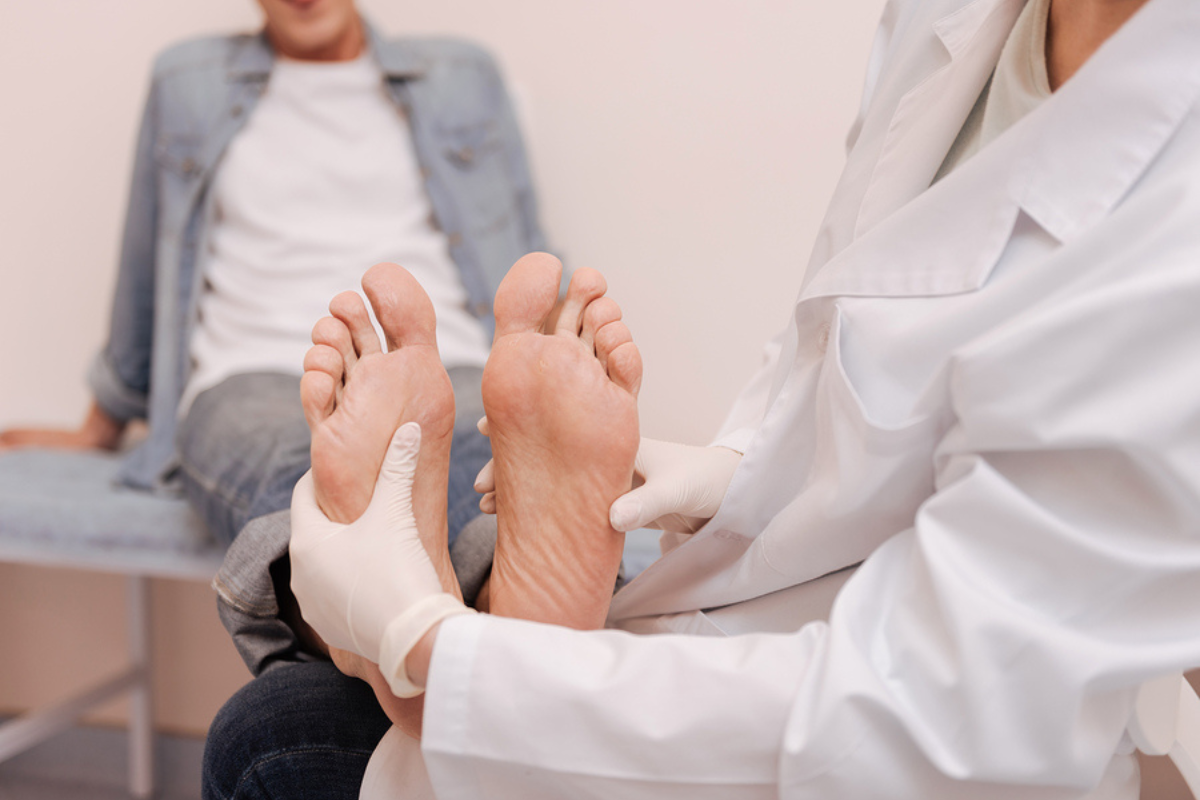Foot ulcers are a significant concern for individuals with neuropathy, particularly those living with diabetes or other conditions that impair nerve function. Neuropathic foot ulcers occur when nerve damage reduces sensation in the feet, making it difficult for individuals to notice injuries, cuts, or pressure sores. Without prompt and effective treatment, these ulcers can lead to severe complications, including infection, amputations, and even hospitalization. Orthopedic treatment options aim to manage symptoms, promote healing, and prevent further complications, offering a multifaceted approach to care.
Understanding Neuropathic Foot Ulcers
Neuropathic foot ulcers are the result of a complex interplay between nerve damage and reduced blood flow. Neuropathy impairs sensation, which means that small injuries can go unnoticed, allowing them to worsen into ulcers. Common causes include diabetes, peripheral artery disease, traumatic injuries, and chronic inflammatory conditions. These ulcers typically appear as open sores on the bottom of the foot or toes and can vary in severity. They may be painful or painless depending on the extent of the nerve damage. Understanding the pathophysiology of these ulcers is crucial for effective treatment and prevention.
Orthopedic Treatment Options for Neuropathic Foot Ulcers
Pressure Relief Techniques: The primary goal of orthopedic treatment is to reduce pressure on the ulcer site. This is achieved through the use of specialized orthopedic footwear and custom orthotics that redistribute pressure away from the ulcer. Pressure-relieving pads and casts can also be used to provide additional support and cushion, preventing further damage. Offloading techniques are particularly important for healing and are tailored to each patient’s needs to ensure maximum comfort and effectiveness.
Wound Care Management: Effective wound care is essential in treating neuropathic ulcers. This includes regular debridement to remove dead tissue and promote healthy tissue regeneration. Dressings and bandages are selected based on the stage of the ulcer and the level of infection risk. Infection prevention is a key focus, as any break in skin integrity can lead to serious complications. Healthcare providers may use topical agents, antiseptics, and antibiotics as needed to manage infection and promote healing.
Pain Management Strategies: Managing pain is another critical aspect of treatment. Non-steroidal anti-inflammatory drugs (NSAIDs) may be prescribed to relieve pain and inflammation. For chronic or severe pain, stronger pain relief options, including topical analgesics, may be considered. Additionally, physical therapy can play a significant role in pain management, helping patients regain mobility and strength. Cold and heat therapy might also be utilized to alleviate discomfort and promote circulation to the affected area.
Physical Therapy and Exercise Programs: Physical therapy is an integral part of managing neuropathic foot ulcers. It helps improve circulation, strengthen muscles, and restore joint function, which can aid in ulcer healing and prevent recurrence. A tailored exercise program can help individuals with neuropathy maintain balance and mobility, reducing the risk of falls and further injuries. Physical therapists may also provide guidance on proper foot care and teach exercises designed to relieve pressure from the ulcer site.
Surgical Options: In some cases, surgery might be necessary to treat severe neuropathic foot ulcers. Surgical interventions can include tendon transfers, skin grafts, or debridement to remove damaged tissue and improve blood flow. These procedures aim to provide long-term solutions by addressing the root cause of ulceration and preventing further complications. Surgery is considered when non-surgical methods have failed to provide adequate relief or healing.
Preventive Measures and Long-Term Care
Preventing neuropathic foot ulcers begins with proactive self-care. Routine foot care, including daily inspection for cuts, blisters, or pressure sores, is crucial. Individuals should maintain proper blood sugar levels and manage other health conditions that contribute to neuropathy. Lifestyle changes, such as wearing appropriate footwear, avoiding excessive pressure on the feet, and maintaining a healthy weight, are essential in reducing ulcer risk. Regular check-ups with healthcare providers can help monitor foot health and address any emerging issues before they become severe.
Frequently Asked Questions (FAQ)
Q: What are the common causes of neuropathic foot ulcers? A: Neuropathic foot ulcers are commonly caused by nerve damage due to conditions such as diabetes, peripheral artery disease, traumatic injuries, or chronic inflammatory diseases. These conditions impair sensation in the feet, making it difficult to detect small injuries that can progress into ulcers.
Q: How do orthopedic treatments differ from standard wound care? A: Orthopedic treatments for neuropathic foot ulcers focus on pressure relief and restoring foot function to promote healing, whereas standard wound care may not address the underlying biomechanical issues that contribute to ulcer formation. Orthopedic interventions include custom orthotics, pressure-relieving techniques, and specialized footwear to prevent re-ulceration.
Q: What role does physical therapy play in the treatment of neuropathic ulcers? A: Physical therapy helps improve circulation, strengthen muscles, and maintain joint mobility, which are essential for ulcer healing and preventing recurrence. It also teaches patients how to care for their feet properly and avoid pressure on ulcer sites.
Q: Are surgical options always necessary for severe cases? A: Surgical options are considered when non-surgical treatments have not been effective in healing the ulcer or when complications such as infection threaten the patient’s health. Surgery aims to correct underlying issues and improve foot function.
Q: How can I prevent neuropathic foot ulcers from recurring? A: To prevent neuropathic foot ulcers from recurring, it’s important to maintain proper foot hygiene, manage blood sugar levels, wear appropriate footwear, and avoid excessive pressure on the feet. Regular check-ups with healthcare providers can help monitor foot health and catch any potential issues early.






